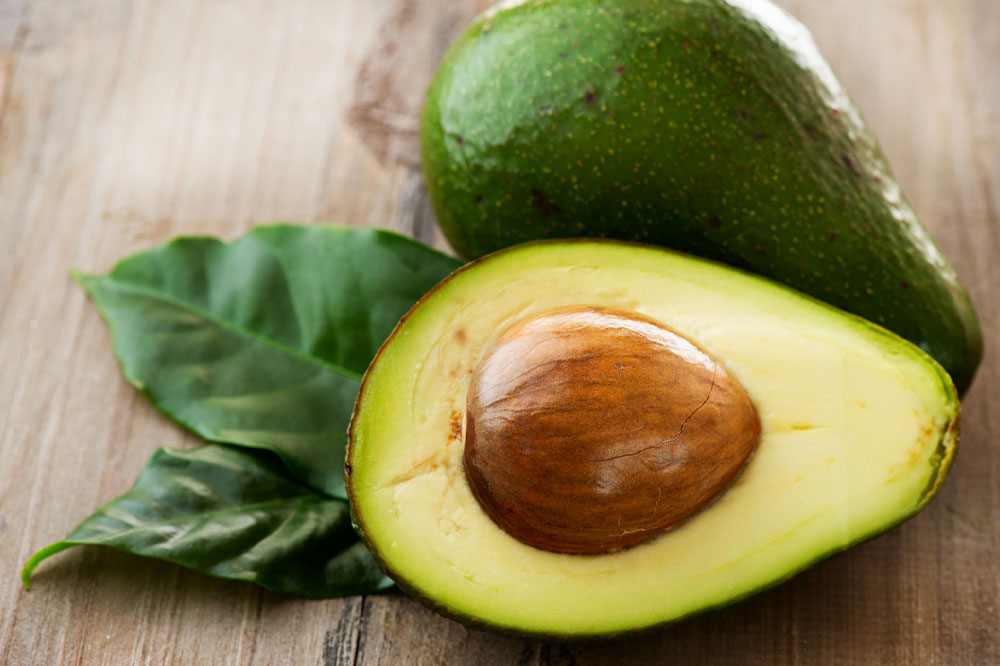10 superfoods for glowing skin

Healthy, glowing skin requires more than just expensive skincare products. It involves making lifestyle adjustments like switching to a healthy meal plan. Some foods increase the skin’s radiance and elasticity and provide a youthful appearance by nourishing it from the inside out. They are also tasty and easily available in supermarkets, so you will not regret adding them to your plate on any given day. Let’s find out what these foods are.
Best foods for glowing skin
Below, we have listed ten foods that can help you in your journey toward healthy, youthful-looking skin. However, it is advisable to consult a nutritionist to determine how much of each a person can eat daily and whether any food can interfere with a treatment they may be using:
- Avocados
Avocados are an excellent source of vitamins E and C, which are vital for healthy skin. These vitamins defend the skin from external elements like UV radiation. Avocados also have omega-3 fatty acids. These are good fats with anti-inflammatory properties that help maintain skin elasticity and moisture. The fruit can be used in soups and salads, puréed and spread on toast, or blended into a delicious smoothie. - Blueberries
These teeny-tiny fruits are antioxidant powerhouses that fight free radicals, delaying the onset of aging and protecting skin cells from harm. They also have vitamins A and C that encourage collagen formation, which is necessary for a softer and smoother complexion. While blueberries are best eaten as is during snack time, they can also be added to desserts or dropped over pancakes as a topping. - Salmon
Salmon is a fantastic addition to the meal plan for those looking to achieve glowing skin. The fatty fish is rich in omega-3 fatty acids that lessen dryness and irritation by preserving the skin’s moisture barrier. Salmon also has astaxanthin, a strong antioxidant that increases skin suppleness and minimizes wrinkles and fine lines. - Spinach
Spinach is a nutritional powerhouse for skin health, packed with iron, antioxidants, and vitamins A, C, and E. Together, these elements fight oxidative stress, restore damaged skin cells, and promote a radiant, fresh complexion. The leafy green can be added to salads and several other everyday recipes. - Walnuts
Walnuts are a fantastic source of omega-3 and omega-6 fatty acids. These beneficial fats help the skin’s natural oil barrier to retain moisture and avoid skin dryness. Walnuts also have vitamins E and C, which support skin health. Individuals can munch on these nuts in their natural form, sprinkle them on salads, or roast and add them to a homemade trail mix. - Sweet potatoes
The body converts beta-carotene in sweet potatoes into vitamin A, which encourages skin cell renewal. Vitamin A also fights free radicals and promotes a glowing, healthy complexion. However, sweet potatoes should be had in moderation. They can be baked, roasted, or steamed as per one’s preference. - Green tea
Green tea is well-known for its rich reserves of catechin. The antioxidant defends the skin from oxidative stress and pollution-related deterioration. Regularly consuming this beverage can also decrease inflammation, hydrate the skin, and possibly guard against skin cancer. Studies suggest that three to five cups per day might be optimal to enjoy most health benefits of green tea. - Tomatoes
Lycopene is an antioxidant in tomatoes that gives them a vivid red color. It protects the skin against UV damage, lowers the risk of sunburns, and slows the signs of aging. Tomatoes also have vitamins A and C, which encourage the creation of collagen. They can be added to soups, stir fry, and numerous other recipes. - Dark chocolate
Dark chocolate benefits the skin in several ways. For instance, its flavonoid and antioxidant content boosts blood circulation in the skin, giving it a healthy and glowing appearance. Dark chocolate also protects the skin from UV damage and hydrates it. However, it is high in calories and fat and should be consumed in moderation. - Almonds
Almonds are among the best sources of vitamin E, which protects the skin from oxidative stress, repairs damaged skin cells, and promotes healing. Almonds also have healthy fats that promote overall health, making them a must-have superfood.
What to avoid?
While the foods listed above can help achieve glowing skin, certain others can have the opposite effect, damaging skin cells and causing acne and inflammation. A few such foods to avoid include:
- Candy
Eating too many sweets can result in glycation, a process in which sugar molecules bond to collagen fibers, making them stiff and less elastic. The skin may appear lackluster as a result. Sugary foods can also increase insulin levels, causing inflammation and aggravating acne. - French fries
Fast food and deep-fried snacks are full of harmful fats, refined carbs, and artificial additives. They increase bodily inflammation, resulting in skin problems like acne and breakouts. The trans fat in fried foods can also harm the skin’s protective natural barrier, leading to dryness and a dull complexion. - Dairy products
Dairy products can sometimes result in skin conditions like acne, clogged pores, and breakouts. Hence, those looking to achieve glowing skin might want to limit their dairy intake and see if that helps. - High-glycemic index foods
White bread, white rice, and sugary products have a high glycemic index (GI). Foods with a high GI can raise blood sugar levels quickly, leading to inflammation and unwanted skin issues. Whole grains, legumes, and low-GI fruits and veggies may be preferable for bright, glowing skin. - Fizzy drinks
Fizzy drinks can dehydrate the skin, resulting in dryness and a poor complexion. They can also widen blood vessels, leading to skin irritation and redness. Further, fizzy drinks can interfere with the absorption of vital minerals and antioxidants, preventing skin healing and rejuvenation.
Prioritizing nutrition is important when working toward healthy, glowing skin. Individuals should avoid foods with sugar and additives and opt for skin-friendly foods with minerals, vitamins, and antioxidants.
















